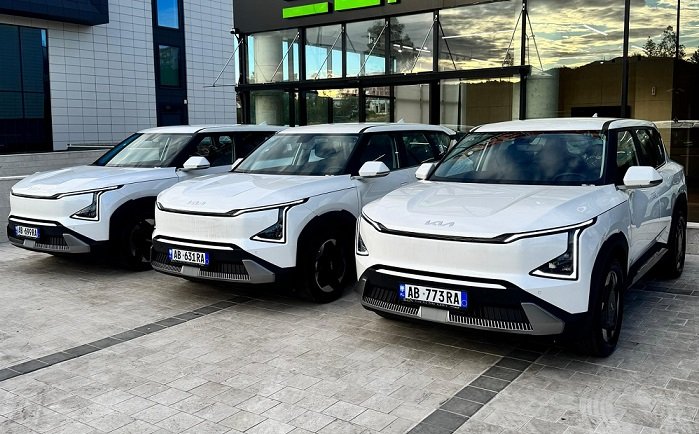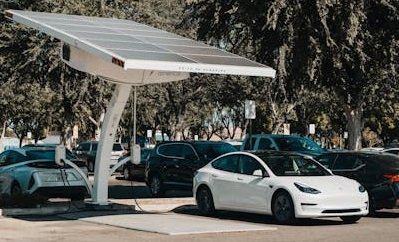Introduction
Electric cars are no longer just the toys of the eco-conscious or the tech-savvy. They’ve gone mainstream, and more drivers are making the switch to electric vehicles (EVs) not just to reduce their carbon footprint, but also to save big bucks. One of the most significant ways to save? Government incentives, particularly electric car rebates. If you’re considering buying an electric car, you might be eligible for thousands of dollars in rebates that can make the purchase more affordable than you ever imagined. Let’s dive into how these electric car rebates can save you thousands of dollars and help the environment at the same time.
1. What Are Electric Car Rebates?
Electric car rebates are financial incentives offered by governments and sometimes local utility companies to encourage the adoption of electric vehicles. The idea behind these incentives is to make EVs more affordable to the average consumer by lowering the upfront cost. Rebates can come in the form of a tax credit, a direct cash rebate, or even perks like free parking or reduced tolls.
- Federal Rebates: In many countries, the federal government offers significant rebates on the purchase of an electric vehicle. In the U.S., for example, buyers can receive up to $7,500 as a tax credit depending on the make and model of the EV.
- State and Local Rebates: On top of federal rebates, many states, provinces, or municipalities offer additional financial incentives. Some states offer cash rebates of up to $5,000, while others may provide tax credits, reduced vehicle registration fees, or other benefits.
- Utility Rebates: In certain areas, local power companies provide rebates to encourage EV ownership, sometimes even offering rebates for home charging equipment.
The Bottom Line: Between federal, state, and local rebates, buyers can knock thousands off the price of an electric vehicle. It’s not uncommon to see savings of over $10,000 when all rebates are combined.
2. The Impact of Federal Tax Credits on EV Purchases
One of the most well-known incentives in the U.S. is the federal tax credit for electric vehicles. This credit can be up to $7,500 depending on the car you buy, but the devil is in the details. Let’s break it down:
- How It Works: The federal tax credit isn’t a cash rebate handed over at the dealership. Instead, it’s a credit applied when you file your taxes. This means that if you owe $5,000 in taxes at the end of the year, and you qualify for the full $7,500 rebate, you’ll wipe out your tax bill entirely and carry the remaining $2,500 over as a credit for next year. However, if your tax liability is less than the rebate amount, you don’t get the leftover as cash — the credit is non-refundable.
- Qualification: Not every electric vehicle qualifies for the federal tax credit. As of now, some manufacturers have reached the cap (like Tesla and GM), meaning their customers can no longer claim the federal credit. Be sure to check if the car you’re considering is eligible.
- Tax Season Joy: Picture this — it’s tax season, and while everyone else is groaning about tax bills, you’re sitting pretty knowing that the electric car you bought last year is going to make filing your taxes a whole lot more pleasant.
Pro Tip: Consult a tax advisor to fully understand how the tax credit works for you, especially if you’re unsure about your tax liability.
3. State-Specific Rebates: What’s Available Near You?
Federal incentives are fantastic, but many states take it a step further with their own rebates and credits, giving you even more reasons to go electric. Depending on where you live, the savings can be substantial.
- California: As one of the most progressive states when it comes to EV adoption, California offers rebates through the Clean Vehicle Rebate Project (CVRP). Eligible buyers can get up to $4,500 back on an electric vehicle purchase, with additional rebates available for low-income households.
- New York: New York’s Drive Clean Rebate provides up to $2,000 for the purchase or lease of a new electric car. This is on top of the federal tax credit, meaning New Yorkers can save a significant chunk of change.
- Colorado: With one of the highest state rebates in the U.S., Colorado offers up to $5,000 in tax credits for electric vehicles. If you’re in the Centennial State, this is an opportunity you won’t want to miss.
- Other States: States like Oregon, Massachusetts, and New Jersey all have their own programs, which can range from cash rebates to tax incentives to discounts on charging equipment.
Bonus Savings: Some states also offer additional perks like reduced vehicle registration fees, no sales tax on electric vehicles, or discounted tolls.
4. Utility Companies Are Getting in on the Action
Many utility companies are jumping on the EV bandwagon by offering rebates for purchasing or leasing an electric vehicle. These rebates can range from a few hundred dollars to thousands, and can also extend to home charging station installations.
- Charging Equipment Rebates: EV buyers may also qualify for rebates on Level 2 home charging stations, which can range from $200 to $1,500. This can significantly lower the cost of setting up a home charging station, which is a must for most EV owners.
- Special EV Rates: Many utility companies also offer discounted electricity rates for EV owners. By charging your vehicle overnight, when demand is low, you can take advantage of off-peak rates that reduce your energy bill.
Example: Southern California Edison (SCE) offers a $1,000 rebate for EV buyers and provides special EV time-of-use rates that make charging your car cheaper at night.
Bonus Tip: Check with your local utility company to see what rebates or incentives they offer. You might be surprised how much you can save
5. Long-Term Savings on Fuel and Maintenance
Beyond the upfront rebates and incentives, the real savings come in over the long term. Electric vehicles have significantly lower fueling and maintenance costs compared to traditional gas-powered cars.
- Fuel Savings: With the average cost of electricity per mile being far lower than gasoline, you’ll see immediate savings at the “pump” (or charging station). Charging at home, especially on a time-of-use plan, can reduce your monthly “fuel” expenses to a fraction of what you’d spend on gas.
- Maintenance Savings: Electric vehicles have fewer moving parts than traditional internal combustion engine (ICE) cars. This means no more oil changes, fewer parts to wear out, and fewer overall maintenance headaches. Over the life of the car, this can save thousands of dollars in maintenance costs.
- Resale Value: As electric vehicles become more mainstream, their resale value is holding strong. Plus, with fewer mechanical issues to worry about, your EV is likely to age better than a gas-guzzler.
6. The Environmental and Social Benefits of EV Rebates
While the financial savings are a huge draw, it’s worth remembering that these rebates are about more than just money. They’re part of a broader effort to reduce greenhouse gas emissions, improve air quality, and fight climate change.
- Reducing Emissions: The transportation sector is one of the largest contributors to carbon emissions, and electric vehicles play a key role in reducing our dependence on fossil fuels.
- Cleaner Air for All: By switching to an electric vehicle, you’re helping to reduce harmful pollutants that contribute to smog, asthma, and other respiratory issues.
- Leading the Charge: When you buy an electric vehicle, you’re not just saving money — you’re also becoming part of a global movement toward sustainability. And the best part? Governments are willing to pay you to make the switch.
7. How to Maximize Your Savings: Combining Rebates and Incentives
To get the most bang for your buck, it’s essential to combine as many rebates and incentives as possible. Here’s how you can maximize your savings:
- Do Your Research: Before you buy, research all the available rebates at the federal, state, and local levels. Many dealers will offer to help with this, but it’s worth doing your homework to ensure you don’t miss any opportunities.
- Time Your Purchase: Some states have limited rebate funds, which can run out. Make sure to apply for rebates early or time your purchase when new funds are released.
- Leverage Utility Rebates: Check with your local utility provider for any additional incentives on the purchase or installation of home charging stations. These can be combined with federal and state rebates for maximum savings.
- Tax Advisors Are Your Friend: Especially for federal tax credits, it’s crucial to understand how they apply to your specific situation. A tax advisor can help you ensure that you’re getting every penny you’re entitled to.
Conclusion: Are Electric Car Rebates Worth It?
In short, yes! Electric car rebates can save you thousands upfront and set you up for even more savings over the lifetime of your vehicle. By combining federal, state, and local incentives, you can dramatically reduce the cost of an electric vehicle. Add in long-term savings on fuel and maintenance, and it’s clear why so many drivers are making the switch to electric cars.



